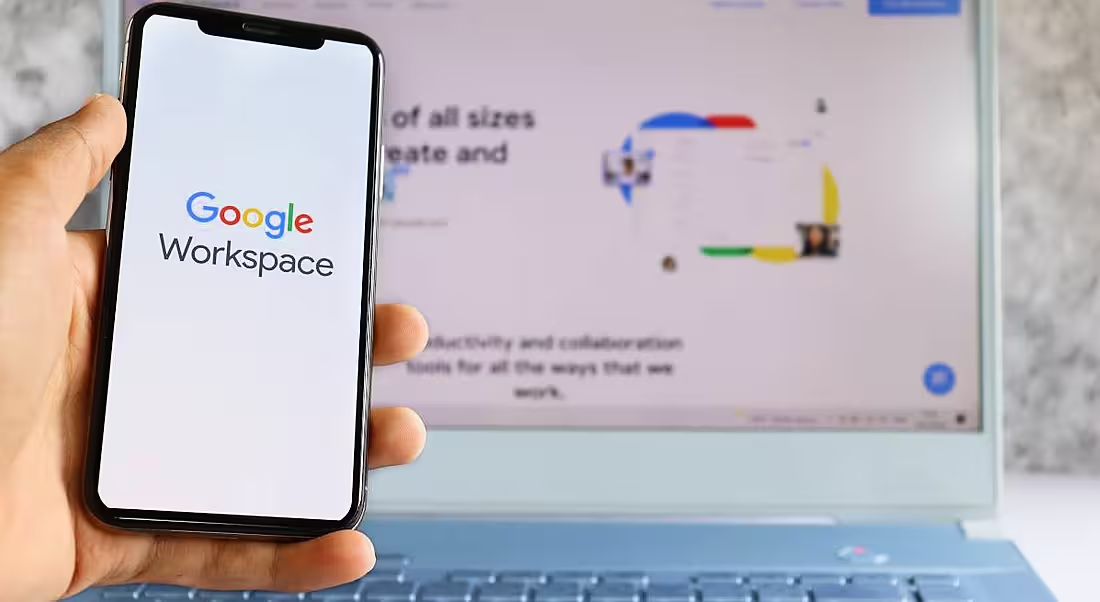Organisations can now avail of Google’s Spaces feature, along with other tools that enable staff to collaborate virtually.
Google Workspace has launched several new features across its suite of productivity tools to help businesses prepare for hybrid work.
Workspace is Google’s answer to productivity and collaboration platforms such as Microsoft Teams. It combines features including Gmail, Calendar, Drive, Docs, Sheets, Slides, Meet and Tasks.
However, the tech giant is now making an effort to bridge what it calls “hybrid work gaps” by launching new flexible collaboration features.
“As some people return to the office, teams need that ability to flexibly collaborate from anywhere, any time,” said Google Workspace’s senior director of product management, Sanaz Ahari.
“At Google, we face the same challenges that I’ve heard from many of our customers: how do we stay in sync, make decisions and build team culture in a hybrid environment? The innovations we’re bringing to customers today help bridge the gaps of virtual and in-person collaboration.”
Spaces went live for Workspace users following the product launch announcement yesterday (8 September). This feature lets users share information, work on projects and build communities as teammates. It is fully integrated with other Google Workspace tools to help users to collaborate virtually.
According to a handbook for businesses published by Google to accompany the new features, hybrid is about “more than where you work”.
In the coming months, Google said it will announce more features and updates to improve customers’ hybrid working experience. These will include streamlined navigation, enhanced search, more robust security and admin features, while Spaces will get an update with a discoverability feature.
Google Meet and Google Calendar have also been updated to help with the expected rise of hybrid meetings. Team members will now be able set their working location on Calendar. They can also indicate to their colleagues whether they will attend meetings virtually or in person.
Google Meet has introduced a calling feature, which is intended to complement more structured video meetings. The feature will be rolled out to one-on-one chats within the Gmail mobile app initially.
Later in the year, Google Meet users will be able to avail of ‘companion mode,’ which lets workers join meetings from their personal device while leveraging in-room audio and video. Live-translated transcriptions will also be rolled out in the next few months.
To complement its Google Meet updates, Google has announced two new all-in-one video conferencing devices to complement its Series One meeting room kits.
The Series One Desk 27 is configured for desktops and small shared spaces in the office or at home. The Series One Board 65 is designed for team rooms and shared spaces and has an optional stand for configuration flexibility. Both devices allow users to use the conferencing service of their choice with connection from their laptops.




